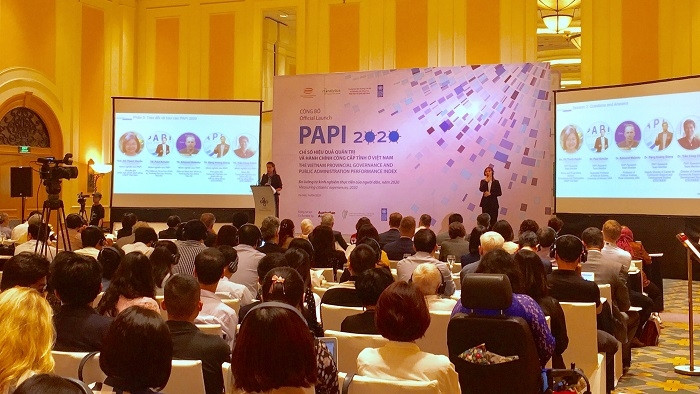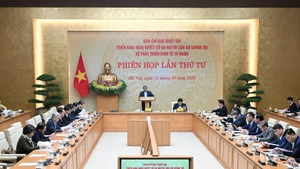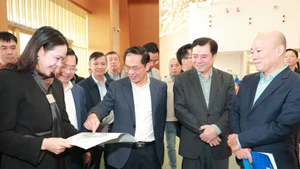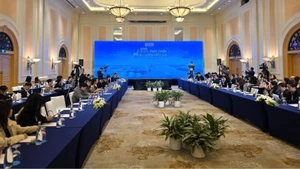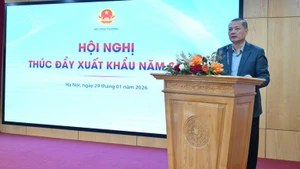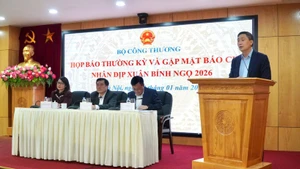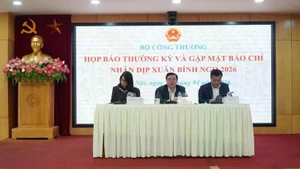The report, which assesses citizen experiences with the performance of national and local governance, public administration, and public service delivery, presents detailed findings on how provinces performed across the eight PAPI dimensions (Participation at Local Levels, Transparency in Local Decision-making, Vertical Accountability, Control of Corruption in the Public Sector, Public Administrative Procedures, Public Service Delivery, Environmental Governance, and E-Government), as well as the aggregate PAPI scores.
Accordingly, in 2020, none of the 63 provinces were in the top performing group across all eight dimensions. However, notably, when taking the aggregate PAPI scores into account, Quang Ninh has risen to the top with a total score of 48.811.
The northern province is also in the group of 16 provinces and cities with the highest score in terms of PAPI dimensions, in which Quang Ninh leads the country in three criteria: Transparency in Local Decision-making (6.499 points), Control of Corruption in the Public Sector (8.286 points) and Public Service Delivery (7.713 points).
Quang Ninh Province was followed by the Mekong Delta province of Dong Thap (46.961) and the northern province of Thai Nguyen (46.471).
The PAPI Report shows an incremental improvement in national governance and public administration performance during the 2016-2021 government term, with Control of Corruption in the Public Sector showing the strongest improvement, rising significantly each year since 2016.
The dimension on Vertical Accountability Towards Citizens also steadily improved during the 2016-2021 term, mainly because an increasing number of citizens have been contacting local officials, particularly village heads and People’s Council delegates.
UNDP Resident Representative in Vietnam Caitlin Wiesen shared that new features of the 2020 PAPI Report include insightful findings on the performance of local governments across two terms (2011-2016 and 2016-2021); experience of internal migrants in accessing services in receiving provinces; and voter perception of women in leadership roles.
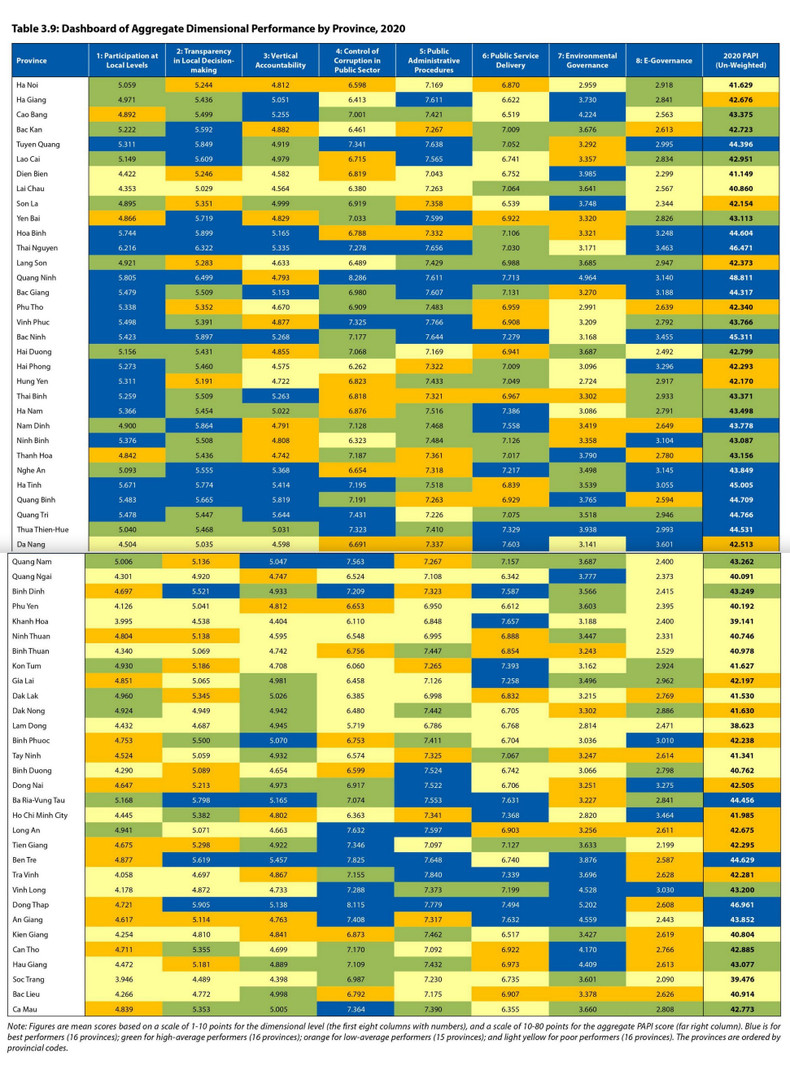
Summary of PAPI 2020 results of 63 provinces and cities. (Photo: UNDP)
As the Government embarks on a new term, PAPI provides rich and deep datasets on citizens’ perception of local government achievements in each of the 63 provinces along with important metrics to review and further improve their performance across eight key dimensions of governance, Wiesen added.
Analysis in the 2020 PAPI Report shows that citizen engagement and anti-corruption efforts have a positive correlation with Vietnam’s ability to respond to the COVID-19 pandemic.
Australia’s Ambassador to Vietnam, Robyn Mudie, noted that Findings from the 2020 PAPI Report show that there is a correlation between good governance and effective pandemic response. “In other words, good governance matters. Looking ahead, improving governance will prove extremely useful in managing other unexpected emergency situations in Vietnam,” she added.
Over 14,700 citizens were interviewed for the 2020 PAPI Report. This is the largest number of citizens to participate since the survey was first conducted nationwide in 2011. For the first time, the survey also gathered responses from citizens with temporary residence registration status. Nearly 300 migrants were surveyed in the six centrally governed municipalities and provinces of Hanoi, Ho Chi Minh City, Bac Ninh, Da Nang, Dong Nai and Binh Duong.
The responses by non-permanent residents have provided a better understanding of the effect of internal migration on provincial performance in governance and public administration. This data is critical for the design of inclusive governance solutions in which the migrant population is not left behind.
“The current efforts to create national database systems on population and issue digitized citizen identification cards are steps in the right direction. Having a universal identification number will enable citizens to access governance and public services equally regardless of their place of residence within the country,” Wiesen said.
Dr. Nguyen Huu Dung, Vice President of the Central Committee of the Vietnam Fatherland Front said: “We hope that PAPI will continue to serve as a reliable policy monitoring tool that helps promote government accountability and reform, thereby furthering modern governance. We also hope that PAPI will continue to provide valuable independent data and information for our oversight and social feedback functions at the Vietnam Fatherland Front so that we can be more inclusive, constructive, science-based and empirical.”
